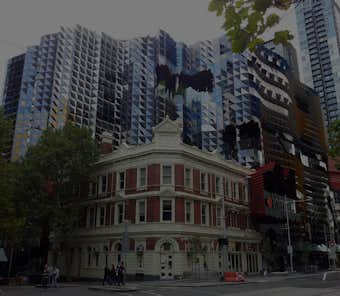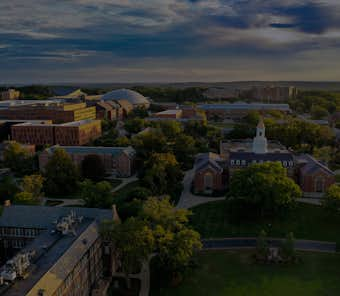
Study urbanism abroad
Find programs that match your eligibility and aspirations then apply with reduced application fees, a free assessment and access to a dedicated advisor.
Find your perfect urbanism programs abroad
Find urbanism programs you love that match your needs & aspirations, where you stand a high chance of acceptance.
Urbanism degrees abroad
Urbanism is the study of how people interact with their built environments. It explores how towns and cities around the world have been designed and constructed throughout history, and how they have been rejuvenated to meet the needs of their inhabitants.
Urbanism blends elements of sociology, architecture, urban design, and urban policy to form an interesting interdisciplinary subject. You’ll explore key theories, concepts, and philosophies behind urban development, and consider how historical and cultural contexts influence the planning and building of urban spaces. The knowledge you’ll gain will prepare you for a successful career in the built environment sector.
It’s impossible to truly understand how successful cities are planned, built, used, and managed without visiting them and immersing yourself in the infrastructure. Studying in a foreign city is a fantastic way to gain a global appreciation of urbanism, make professional connections, and improve your employability.

Why use Studee?
-
Find your ideal program
Filter 10,000s of programs down to a shortlist perfect for you, where you have a strong chance of getting admitted
-
Apply online via Studee
Complete our application form and enjoy reduced application fees and access to unique Studee scholarships for many universities
-
We assess within 48hrs
We complete an 85-point assessment within 2 business days, help you with improvements then submit to your university
-
University offer in 2-4 weeks
We chase the university for your admission decision and keep you updated. We all celebrate your admission!
All our services are 100% free as we're funded by universities. You pay deposits and tuition fees directly to the university.

Urbanism program structure
Urbanism is a relatively new subject that is typically studied as a postgraduate master’s degree. An MSc usually takes one year to complete if you’re studying on a full-time basis, or two years if you’re studying part-time. Most universities will ask that you already have a bachelor’s degree in a related subject area, like architecture or engineering, although this isn’t always a requirement.
There are some undergraduate urbanism courses to choose from, but they’re less common. You’ll study over three or four years, depending on your university and whether or not you undertake a placement year.
If you decide to study in the US, urbanism will be your major. Undergraduate courses in the US take four years to finish. You’ll spend the first half of your degree working on your general education, before focusing entirely on urbanism-specific modules in the second half of the course.
Once you’ve completed a bachelor’s and a master’s, you could study for a PhD. This advanced research degree usually takes between four and seven years to complete.
Most urbanism programs are taught through a mixture of lectures, seminars, workshops, and practical studio work. Some universities will also arrange for industry experts to deliver guest presentations.
It’s important to bear in mind that your country and city of choice will influence the kind of content you cover on your program. However, most urbanism courses will include these key topics:
- Contemporary urban design
- Urban design history
- Urban theory
- Sustainability
- Transport policy and planning
- Urban economics and politics
- Cities and the environment
- The representation of cities
Types of urbanism degrees
Best countries to study urbanism
Urbanism study abroad programs
Urbanism undergraduate programs
Bachelor's in urbanism
-

Architecture, Landscape Architecture, and Urbanism - BDA The University of British Columbia, Canada
- Program type
- Bachelor's
- Duration
- 4 years
- Annual tuition fee
-
44,838 CAD
Fees are displayed in the university's local currency
- Start date
- September
-

Urban and Community Studies (Hartford Campus) - BA University of Connecticut (in partnership with Kaplan International), USA
- Program type
- Bachelor's
- Duration
- 4 years
- Annual tuition fee
-
39,000 USD
Fees are displayed in the university's local currency
- Start date
- August, January
-

Urban and Intercultural Ministry - BA (Hons) Redeemer University, Canada
- Program type
- Bachelor's
- Duration
- 4 years
- Annual tuition fee
-
18,567 CAD
Fees are displayed in the university's local currency
- Start date
- September
-
Urban and Metropolitan Studies (Downtown Phoenix Campus) - BSc Arizona State University (in partnership with Kaplan International), USA
- Program type
- Bachelor's
- Duration
- 4 years
- Annual tuition fee
-
32,760 USD
Fees are displayed in the university's local currency
- Start date
- August, January
-

Urban and Regional Studies - BA University of Lethbridge, Canada
- Program type
- Bachelor's
- Duration
- 4 years
- Annual tuition fee
-
21,304 CAD
Fees are displayed in the university's local currency
- Start date
- September, January
Diploma in urbanism
-

Urban and Regional Planning Technician: Geographic Information Systems (GIS) - OCDip Mohawk College, Canada
- Program type
- Undergraduate diploma
- Duration
- 2 years
- Annual tuition fee
-
17,645 CAD
Fees are displayed in the university's local currency
- Start date
- September
Urbanism graduate programs
Master's in urbanism
-
Architecture, Landscape and Urbanism - MArch University of Greenwich, UK
- Program type
- Master's
- Duration
- 1 year
- Annual tuition fee
-
16,300 GBP
Fees are displayed in the university's local currency
- Start date
- September
-
Social Global, Urban & Social Studies - MASS RMIT University, Australia
- Program type
- Master's
- Duration
- 2 years
- Annual tuition fee
-
31,680 AUD
Fees are displayed in the university's local currency
- Start date
- July, February
-

Urban and Regional Studies - MA University of Lethbridge, Canada
- Program type
- Master's
- Duration
- 2 years
- Annual tuition fee
-
14,208 CAD
Fees are displayed in the university's local currency
- Start date
- January, May, September
Doctorate in urbanism
-
Global, Urban & Social Studies - PhD RMIT University, Australia
- Program type
- Doctorate
- Duration
- 4 years
- Annual tuition fee
-
31,680 AUD
Fees are displayed in the university's local currency
- Start date
- July, February
Future urbanism careers
Rates of urbanization across the globe are continuing to rise. As such, developing safe and sustainable cities is a priority for many countries. Your degree will equip you with the skills needed to excel in any of the following jobs:
- Urban designer
- Environmental manager
- Housing officer
- Transport planner
- Landscape architect
- Urban sustainability consultant
- Lecturer
- Researcher
It’s important to demonstrate a real passion for your field and to keep up to date with any developments in the sector. One of the best ways of doing this is to undertake some work experience or an internship at a relevant company or organization. Your university’s career service can help you source and apply for these opportunities.















